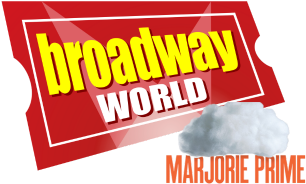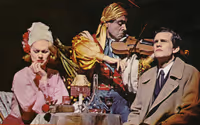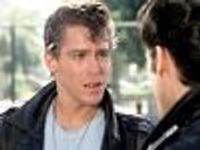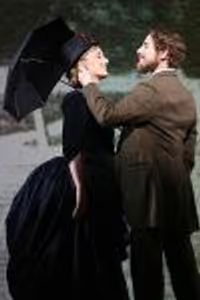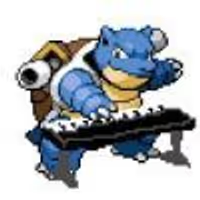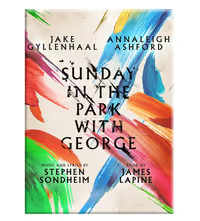When does a musical become "sung-through"
Alex Kulak2
Broadway Legend Joined: 9/11/16
#1When does a musical become "sung-through"
Posted: 12/18/16 at 10:58pm
Is there a margin for when a musical has enough singing where it is considered "sung-through"? On one end of the spectrum, you have Hamilton, Les Miz or The Last Five, where there is little or no spoken dialogue whatsoever. However, a show like Sweeney Todd or Next to Normal is about 75-80% sung, but it is still considered sung through. What is the ratio of sung text to spoken text that makes a show sung through or not?
#2When does a musical become
Posted: 12/18/16 at 11:08pm
Sweeney Todd and Next to Normal are NOT sung through and anyone who classifies them as such is incorrect. Dreamgirls is sometimes called sung through too but that's also incorrect.
There aren't that many that are truly sung through. THE GOLDEN APPLE is one example, JESUS CHRIS SUPERSTAR is another. Shows like HAMILTON or EVITA are still classified as sung through even though they have some spoken moments.
Alex Kulak2
Broadway Legend Joined: 9/11/16
#3When does a musical become
Posted: 12/18/16 at 11:11pm
There's also Great Comet, Murder Ballad, and Falsettos, that are almost completely sung through.
Even if Sweeney Todd or Next to Normal aren't sung-through, you have to admit they are on the cusp. There is much more singing than talking in both of the shows.
#5When does a musical become
Posted: 12/18/16 at 11:31pm
I mean... you sort of answered your own question. Shows with little to no dialogue can be considered sung through. Others, can not. It's pretty simple.
whatdoesntkillme
Featured Actor Joined: 8/15/16
#6When does a musical become
Posted: 12/19/16 at 1:18am
But where does one draw the line between "much more singing than dialogue" and "sung through even though it has a little dialogue"? Why are Sweeney, N2N, Dreamgirls not sung-through but Hamilton and Caroline or Change are?
#7When does a musical become
Posted: 12/19/16 at 4:11am
There's no hard and fast rule when it comes to the "on the cusp" shows. Sweeney and N2N just have more spoken bits than Hamilton, et al. Personally, I would judge it based on this question: Does it FEEL like a sung-through show that happens to have some spoken bits added in? Or does it FEEL like a traditional musical that just happens to have a larger percentage of music? Despite having some spoken bits, Hamilton, L5Y, American Idiot, Great Comet, Evita, etc. all feel sung-through. Sweeney and N2N do not - IMO.
#8When does a musical become
Posted: 12/19/16 at 5:01am
Aspects of Love ?
Sunday In The Park With George
Cats
Song and Dance/Tell Me On A Sunday
Umbrellas of Cherbourg
Joseph/Dreamcoat
Miss Saigon ?
Sondheim and ALW seem more prominent with this style of musical.
#9When does a musical become
Posted: 12/19/16 at 5:58am
Sunday in the Park with George is not sung through. Not even close.
Alex Kulak2
Broadway Legend Joined: 9/11/16
#10When does a musical become
Posted: 12/19/16 at 7:56am
The reason I thought Sweeney Todd and N2N were considered sung-through was that in the conductors scores, all of the text is written in, not just a line or two to cue the conductor, but all of the spoken lines are written in the margins.
#11When does a musical become
Posted: 12/19/16 at 8:05am
I've never heard the term used to refer to things based on a feeling. I think Greased gets closest here.
The easiest determinants are whether there are words that are not notated and secondarily, whether there are words penned by the book writer as opposed to the lyricist (obviously not helpful when they are one person).
#12When does a musical become
Posted: 12/19/16 at 8:26am
Opening a can of worms, I wouldn't call Hamilton "sung-thru," because the pitch is very often not set by the composer, only a loose/malleable rhythmic pattern. Thus the pitch is often, like with dialogue, chosen by the performers.
Personally, I don't see any real point to the term, as it doesn't truly mean what it implies. I don't know of any musical in which absolutely nothing is spoken.
hannhannham
Chorus Member Joined: 2/5/16
#13When does a musical become
Posted: 12/19/16 at 11:44am
To me, the cast recording gives a lot of clues. For example, you can listen to Hamilton's cast recording and you're essentially getting the entire show (w/small of exception of small scene they left out). Same with Falsettos. I would also consider Evita sung through. With Next to Normal, if you listened to the cast recording, there is quite a bit of dialogue left out, and you might be confused if you hadn't seen the show already.
#14When does a musical become
Posted: 12/19/16 at 11:53am
I agree with newintown that the term seems somewhat arbitrary. What does it matter if a musical, like Great Comet, has only a couple spoken sentences in its entire runtime or if it, like 1776, has 20 minutes of uninterrupted book scene? What is the benefit to distinguishing them?
#15When does a musical become
Posted: 12/19/16 at 12:33pm
@Hogan: My remark about the "feeling" was to illusitrate that it's not exactly easy to draw a clear line when a musical has some spoken parts. Like others have said, I think "sung through" isn't an official term like "Broadway" and "off-Broadway." Not every show can be easily caregorized like that, thus, we make judgements based on how the musical comes across. I didn't mean to claim that the "feeling" was a scientifically sound way to make an official classification - quite the opposite.
#16When does a musical become
Posted: 12/19/16 at 2:55pm
@JB, it is not official in any respect, because it doesn't need to be. I find myself agreeing with much of what you say, and also Kad, The only thing I don't agree with in these last exchanges is the nonsense about pitch.
#17When does a musical become
Posted: 12/19/16 at 3:40pm
If I had to try and define it, I'd say that a sung-through show is one which is not only 85%-100% sung as opposed to dialogue, but one which has little or no "book scenes" not staged specifically to musical underscoring and/or "mickey-mousing." (For those who don't know the term, mickey-mousing is when, in film or onstage, music follows the actions onstage in a deliberate, literal fashion. Picture Mickey Mouse tiptoeing to the old "dum dum, dum, dum DAAAAAAA.... dum-dum-dum-dum" cue.)
The most music-dependent show that still doesn't quite feel "sung-through" to me is Sweeney Todd. There are numerous book scenes, but most are not only underscored but "mickey-moused" to some extent that you couldn't well do the scene without the score.
#18When does a musical become
Posted: 12/25/16 at 1:30am
"The Phantom of the Opera" hasn't been mentioned in this thread. Except for a bit of dialogue here and there, the story is told entirely through song, i.e., it's sung-through.
I find it easier to opine on whether a musical is "sung through" than whether a show qualifies as a musical, an operetta, or an opera. That's a can of worms.
Audrey
#19When does a musical become
Posted: 12/25/16 at 1:46am
Examples of sung-through musicals:
Evita
Hamilton
Jesus Christ Superstar
The Great Comet of 1812
Falsettos
Caroline or Change
Les Miz
Musicals where the majority of the book is underscored isn't sung-through, but is rather more in the realm of an operetta.
Examples of this:
Sunday in the Park with George
Ragtime
Sweeney Todd
Passion
#20When does a musical become
Posted: 12/25/16 at 10:04am
AHLiebross said: ""The Phantom of the Opera" hasn't been mentioned in this thread. Except for a bit of dialogue here and there, the story is told entirely through song, i.e., it's sung-through."
I know, just like Miss Saigon. Both these shows use the language of song/fantasy so well, that most people don't even realize it's sung-through. People will only notice the difference if something is done wrong, with unnatural transitions between speaking and singing or unnatural singing in general (Hugh Jackman). The 2 key points in making this language work. So no unnatural transitions and no speak singing. That makes it too literal and unnatural. It will take audiences out of it and make people wonder about questions like these.
#21When does a musical become
Posted: 12/27/16 at 2:49am
IceCreamBenjamin mentions "Musicals where the majority of the book is underscored isn't sung-through, but is rather more in the realm of an operetta."
ICB, I'm not familiar with the apparently technical term "underscored." Could you explain?
Also, how are you defining an operetta? To me, an operetta is mostly, if not all singing, but the music isn't as "heavy" as an opera score. Like the question of whether a musical is actually an opera, the difference between opera and operetta is, to me, in the eye of the beholder.
#22When does a musical become
Posted: 12/27/16 at 4:23am
^Underscoring is when there is music being played underneath the scene. This can sometimes create an almost rahpsodic quality, where it feels as if there is just one long connected song. Passion is an example of this. Into the Woods and Sunday are also very close to this as well.
An operetta is not necessarily completely sung the way that an traritional opera is. Gilbert and Sullivan's operettas have some dialogue here and there. I consider Sunday and Into the Woods to definitely be operettas by the standard definition. I've heard some people say that musicals like Passion or Sweeney Todd are actually not operettas, but rather an opera due to it's dramatic score and story. I sort of agree with this, but it is arguable. I find them to rather be dramatic operettas. I think that Phantom would fall under the category of an operetta as well, but is really only kind of sung-through due to a few lines of spoken dialogue.
Also, compared to the traditional opera, the music in Phantom and Sweeney and Into the Woods is significantly lighter and is thus considered by many classical minds to fit more in the operetta realm (or the musical theatre realm which many of them consider to be absolute trash).
Videos
